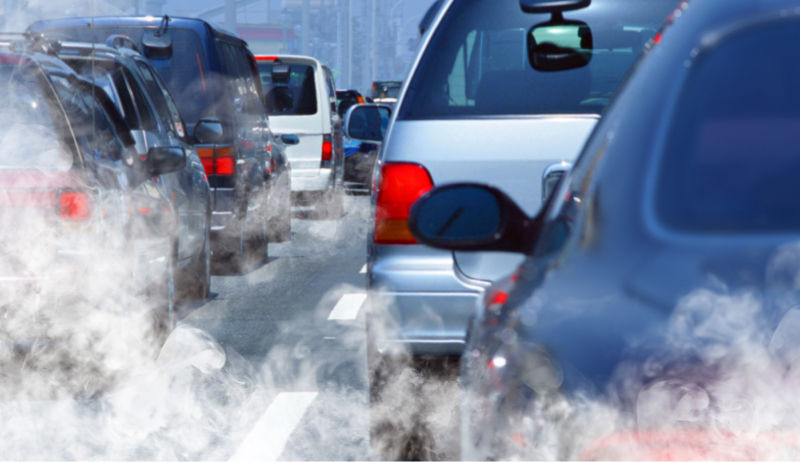
The New York Times reports that the Trump administration will use a meeting at the Environmental Protection Agency on Wednesday to announce the revocation of California’s ability to set its own air pollution standards. The state’s authority was granted by a waiver that allows it to set pollution limits that are stricter than the federal government’s, which is now threatening the administration’s ability to roll back Obama-era standards for automobile fuel economy. This move has been rumored to be under consideration for months and sets up a legal showdown that will pit the federal government against California and the 13 states that plan to follow its lead.
As part of the Obama administration’s push to limit greenhouse gas emissions, the Obama-era EPA negotiated a deal with automakers that would significantly improve the efficiency of future vehicles. As with many Obama-era environmental accomplishments, that agreement has been targeted by the Trump administration. In its analysis, the Trump EPA claimed that fuel-efficient vehicles would increase the fatalities from automobile accidents and proposed freezing fuel efficiency at 2020 levels while preparing new standards. But that analysis was hammered by scientists, who suggested that its cost/benefit analysis was flawed and that it failed to take into account negative consequences.
Meanwhile, various news reports indicated that automakers were uneasy about the degree to which the Trump administration was intending to cut back on automotive efficiency. Part of that unease was likely due to the fact that the automakers are already building far more efficient vehicles for markets that do have stricter standards. But a major factor for automakers was California’s likely unwillingness to go along with the changes.
During the initial implementation of the Clean Air Act, the Golden State was suffering from extensive smog problems and was granted a waiver that allowed it to set stricter pollution standards than those under the Clean Air Act. The waiver has since given the state significant leverage in negotiations regarding national automotive pollution controls, a position enhanced by the decision of a number of states to adopt whatever standards California sets. Due to the vast size of these states’ collective economies, car companies are compelled to meet its pollution standards or generate two different products: one for California and one for the rest of the country. Most have found it easier to simply involve California in negotiations from the start.
Thus, the automakers were worried that the Trump administration was preparing standards that California would never agree to and therefore would likely produce a bifurcation in the US market. Indications are that the Trump EPA is now caught in the middle of balking automakers, decisions that are difficult to justify scientifically (and thus in court), and the hard-line deregulatory stance of administration officials.
A secret plan
That’s where things stood in July, when California sprung a surprise: it had secretly negotiated a deal with Honda, Ford, Volkswagen, and BMW that would see the automakers meet standards that were substantially higher than those being considered by the EPA. That did not sit well with the administration, which reportedly launched an antitrust probe focused on the automakers, a move that drew Congress into the disagreement.
All of which would explain why the Trump administration would be interested in revoking the state’s waiver and why it’s already laid out arguments to justify doing so. The Times reports that this isn’t an indication that the EPA has decided what the new standards should be yet, simply that the agency is clearing the way to impose the standards when they’re ready.
But the Clean Air Act waiver mechanics are set up so that the EPA administrator must grant a waiver to any state wanting stricter standards unless the state is acting in an “arbitrary and capricious” manner or its standards don’t address “compelling and extraordinary conditions.” California would certainly have compelling arguments that climate change represents a compelling and extraordinary condition. And it’s near certain that the state would be willing to test those arguments in court.
https://arstechnica.com/?p=1570159

